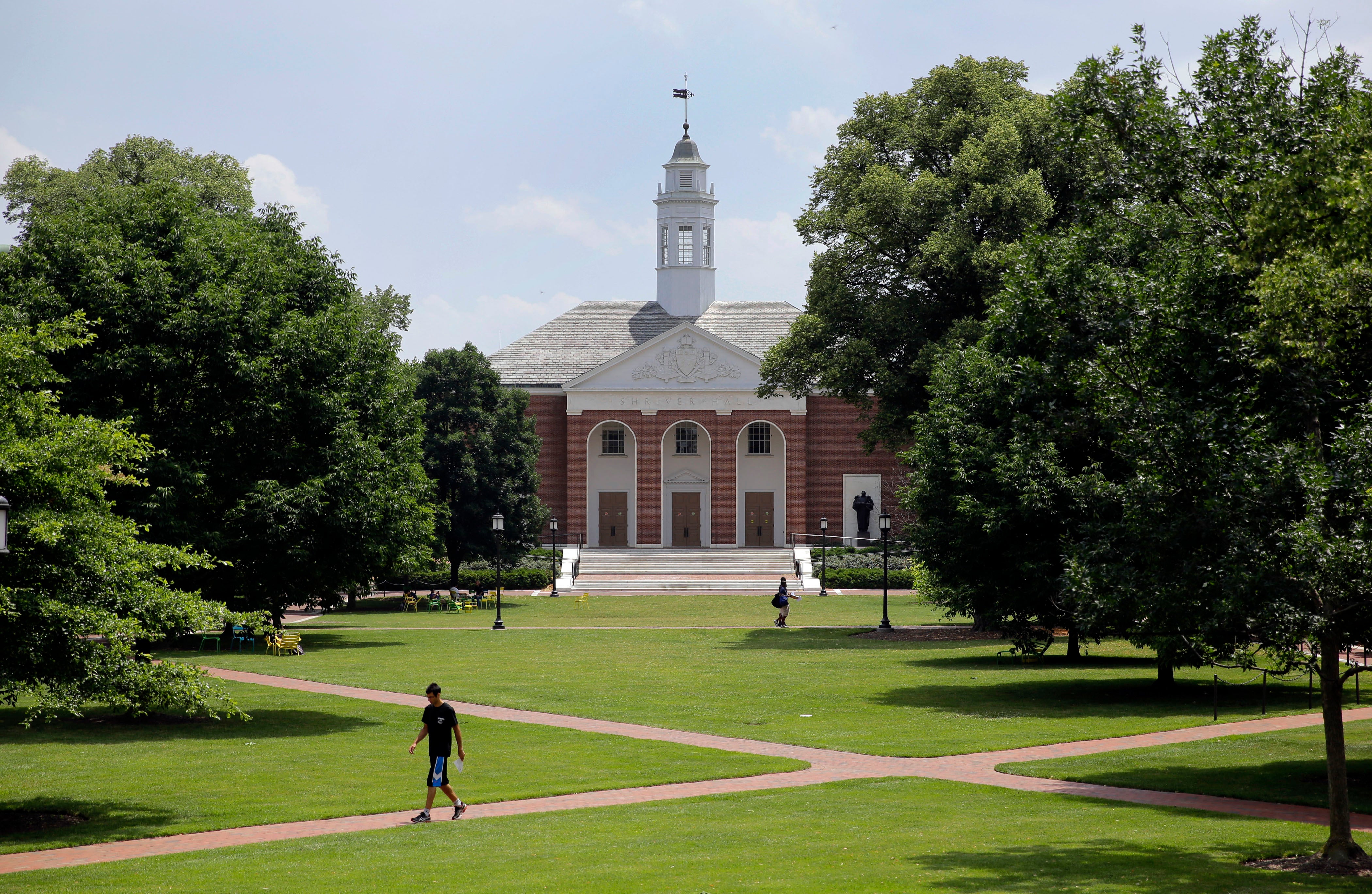
Johns Hopkins University whose researchers have been at the forefront of the global response to COVID-19, announced on Wednesday that its founder owned slaves during the 19th century, a revelation for the Baltimore-based school that had taken pride in the man purportedly being a staunch abolitionist.
Researchers uncovered the information in government census records as part of an initiative exploring the university’s history. The long-held narrative of an abolitionist Hopkins whose father had freed the family’s slaves in 1807 came into question over the past several months.
“We now have government census records that state Mr. Hopkins was the owner of one enslaved person listed in his household in 1840 and four enslaved people listed in 1850,” President Ronald J. Daniels and other school officials wrote in a letter to the Johns Hopkins community. “By the 1860 census, there are no enslaved persons listed in the household.”
Maryland did not abolish slavery until 1864.
The officials said the school will continue researching Hopkins’ life in the coming months to “have a full picture,” as a complete biography of the university’s founder does not exist. They wrote they decided to share the development as part of the school’s effort “to deepen our historical understanding of the legacy of racism in our country, our city, and our institutions.”
Hopkins died in 1873 and left $7 million to open a university, orphanage and hospital. The donation at the time was considered to be the largest philanthropic gift made in the U.S.
Today, the school has about 27,000 students and its researchers have earned 29 Nobel laureates. The private university has played a globally prominent role in tracking the spread of the coronavirus. An online dashboard by the university’s Center for Systems Science and Engineering tracks reported cases in near real-time, providing information to public health officials, media outlets and the public.
But for all the cutting-edge research, the university and hospital have had a complicated relationship with residents of Baltimore a majority-Black city.
Residents were displaced from the neighborhoods around the Johns Hopkins facilities during expansion and redevelopment projects. And some in the community point to the 1951 case of Henrietta Lacks as a reason they distrust the institution. Lacks unwittingly spurred a scientific bonanza when a surgeon at Johns Hopkins Hospital collected a piece of tissue from a tumor while she was under anesthesia for treatment of cervical cancer. Nobody asked for her consent, but her cells are widely used in biomedical research.
The school earlier this year also suspended the creation of a new armed police force similar to those patrolling numerous other U.S. colleges and universities. The school announced plans to create its own police force last year, sparking debate between those who fear police profiling and those who want to increase campus safety as Baltimore struggles with violent crime.
Martha S. Jones, a Hopkins history professor, wrote in a Wednesday opinion piece for The Washington Post that the new information about the university’s founder will rattle the school community.
“This year, so many of us at Johns Hopkins have taken pride in being affiliated with our colleagues in medicine and public health who have brilliantly confronted the coronavirus pandemic,” she wrote. “That pride, for me, now mixes with bitterness. Our university was the gift of a man who traded in the liberty and dignity of other men and women.”
In the letter to the university community, school officials explained that Jones and another researcher has not found evidence substantiating the narrative of Hopkins as an abolitionist.
“They have been unable to document the story of Johns Hopkins’ parents freeing enslaved people in 1807, but they have found a partial freeing of enslaved people in 1778 by Johns Hopkins’ grandfather, and also continued slaveholding and transactions involving enslaved persons for decades thereafter,” the school officials wrote.







